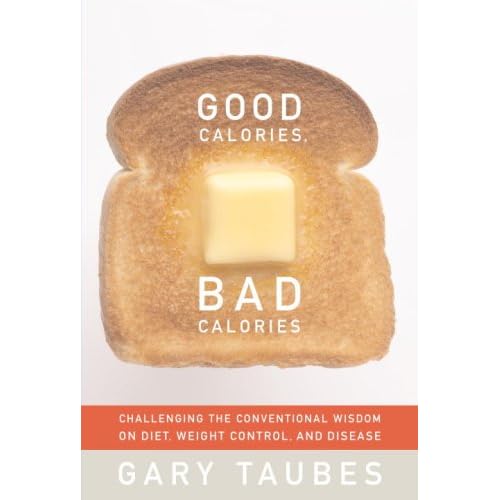
TDD argues that much of what we accept as true about diet and disease is actually little more than a set of plausible assertions that were accepted about 30-40 years ago, but that may in fact be totally untrue. Saturated fat may not actually be bad for you. Excessive carbohydrate might be the culprit instead. Eating fat does not make you fat. Excess calories do not necessarily make you fat. Exercise is not normally an aid to weight loss, and often has the opposite effect, as it boosts appetite. Refined carbohydrates make you gain weight by raising insulin levels, which then stores the food as fat. The nub of it may be that, unfortunately, we still have the same design spec as our Palaeolithic forebears, and they just weren't set up to cope with sugar and starch rather than meat, nuts, and berries.
If you want a more extensive summary, see the ten-point conclusion quoted in the review on David Colquhoun's website, where I first heard about TDD.
One of the book's best features is the absence, not only of diet advice, but also of any dogmatic conclusion. Books that put forward a challenging set of ideas can turn shrill and whiny, but that never happens here. Taubes wisely stays above the fray, instead giving us a detailed and well researched history of how our views about what we should eat developed over the last century or so, and how our health may or may not have been influenced by this. One over-arching conclusion is that pinning down cause and effect in such matters is enormously difficult, expensive, and lengthy.
Taubes' narrative shows how many conclusions reached between about 1930 and 1960 were overturned by a number of well-intentioned but forceful individuals who "knew they were right" even when studies failed to back them up. They also didn't read German much: German and Austrian medicine in the 30s had sorted out fat metabolism and diet to a surprising extent, but who was going to turn to these sources in the late 40s?.
This is one of the best factual books I've read in a long while, perhaps comparing with Richard Rhodes history of the Atomic Bomb. I can't say the sorry tale of poor policy-making surprises me. My (admittedly short) experience working in the civil service gave me plenty of examples of policy based on not-very-much. It would also be interesting to hear how UK policies on diet and health fell in behind the USA's lead.
Time to go and eat something fatty, I think.



2 comments:
Does he talk about genetics at all?
For years I was the thinnest man I knew (who wasn't on heroin) but never paid the slightest attention to what I ate or didn't eat.
From this (rather small sample size) I've always believed body weight was strongly influenced by your genetic make-up.
In my case it seemed to be:
Neurotic disposition + fast metabolic rate + little pleasure from food = Very skinny.
But... I'm putting on weight now!
Not a great deal on genetics, but there must be some kind of effect. No doubt it's all complex and interacting with everything else. Some racial groups do suffer more from obesity.
Middle age spread at last, eh? You always seem to eat a lot of sugar, which is a counter to his argument, though with N=1, as you say.
Post a Comment